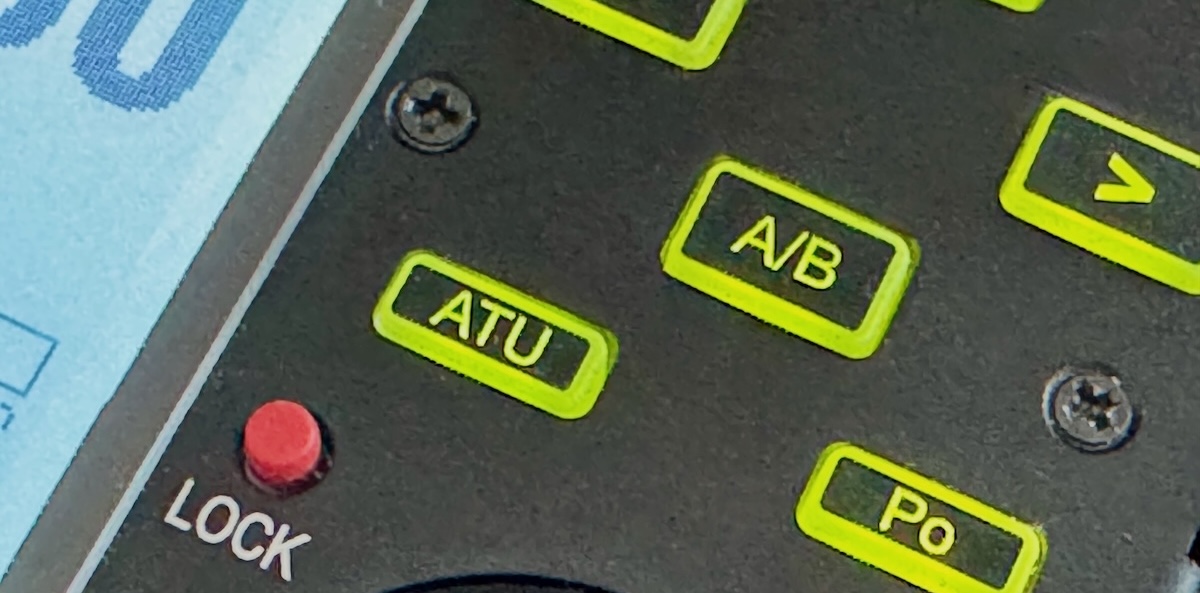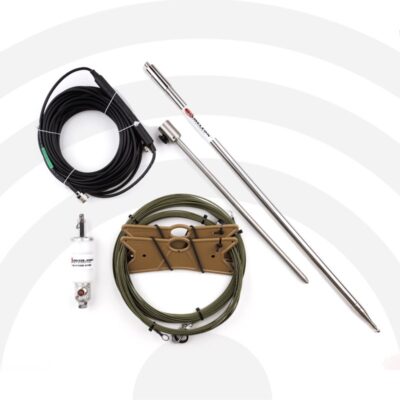Subtotal: 343.24 $
Matching Short HF Antennas – Which Tuner?
Choosing the right antenna tuner setup is key to getting the most out of compact HF antennas like the Chameleon SS17. This post compares three proven methods—including external tuners, matching units, and internal tuner use—to help you select the most efficient and reliable solution for your transceiver, with the Xiegu G90 as a practical example.
Internal Antenna Tuners: Convenient, But With Limits
Many modern HF transceivers—like the Xiegu G90—include a built-in automatic antenna tuner. These internal tuners offer a convenient solution for minor mismatches between antenna impedance and the transceiver’s 50-ohm input. However, their tuning range is limited—typically to a 5:1 SWR, or roughly 10 to 250 ohms.
Internal tuners are great for;
- Matching a Slightly Off-Resonant Dipole
- Using a Vertical Antenna with a Matching Base (like a 4:1 UnUn)
- Tuning End-Fed Half-Wave Antennas with Built-In Matching Units
- Matching Mobile HF Antennas with Pre-Tuned Loading Coils
- Quick Band Changes in the Field when using broadband antennas
This means that while the internal tuner can handle moderate mismatches, it struggles—or fails—when dealing with high-impedance or highly reactive loads. This is especially true when using compact, portable antennas like vertical whips.
The Example Setup: Xiegu G90 + Chameleon SS17 Telescopic Whip
Let’s take a practical example: the Xiegu G90, connected to a Chameleon SS17 5.2-meter telescopic whip mounted on a ground system (radials). This is a common portable or balcony setup for HF. The question is: how can we best match this antenna across multiple bands? Here are three practical tuning options, ranked by efficiency:
✅ Option 1: Place an External Antenna Tuner at the Feed Point
Best performance & efficiency
Installing a remote tuner at the antenna feed point is the most effective way to manage impedance. By matching the antenna directly at the source, you avoid feedline losses entirely and maintain a clean 50-ohm match to your radio. In this configuration, the internal tuner should be bypassed to avoid impedance conflicts with the external matching network and to eliminate unnecessary insertion loss associated with multiple tuning stages.
Recommended product:
👉 Chameleon URT1 Universal Remote Tuner
This weather-resistant remote tuner is ideal for matching short verticals like the SS17, especially in portable or semi-permanent setups.
🟡 Option 2: Use a Passive Impedance Transformer at the Antenna base
Good performance for broadband operation
A wideband impedance transformer (such as a 9:1 or 4:1 unun) at the base of the antenna helps bring the impedance closer to 50 ohms across multiple bands. This reduces the mismatch to within the range that the internal tuner can handle, allowing it to fine-tune the match for safe and efficient operation.
Recommended products:
👉 Chameleonhttps://pileupdx.com HYBRID-MICRO
👉 Chameleon MPAS LITE (with HYBRID-MICRO)
Compact and rugged, it’s ideal for wideband verticals and end-fed wire antennas in both fixed and portable setups.
🔴 Option 3: Use Only the Internal Tuner
Least efficient, but simple
You can try tuning the whip using the G90’s internal automatic antenna tuner alone. In some cases, it might work—but this method often leads to feedline radiation and power loss, since the coax becomes part of the antenna system. This can also introduce unwanted RFI into your shack.
If you choose this route, a high-quality common-mode choke is essential to prevent RF on the coax shield.
Recommended product:
👉 Chameleon 50 Coax with Integrated RFI Choke
It’s a simple plug-and-play way to suppress common-mode currents.
Why This Matters
Using a tuning strategy that addresses the antenna feed point rather than relying solely on your radio’s internal antenna tuner will deliver:
-
Higher efficiency
-
Lower SWR on the feedline
-
Reduced RFI problems
-
More reliable multi-band operation
Whether you’re activating a summit, operating from a small garden, or setting up a stealth balcony station, matching your antenna system properly makes all the difference.
Products Mentioned
-
Antenna Tuners, Chameleon Antenna, Transceiver Accessories
Chameleon Antenna URT1 Universal Remote Tuner
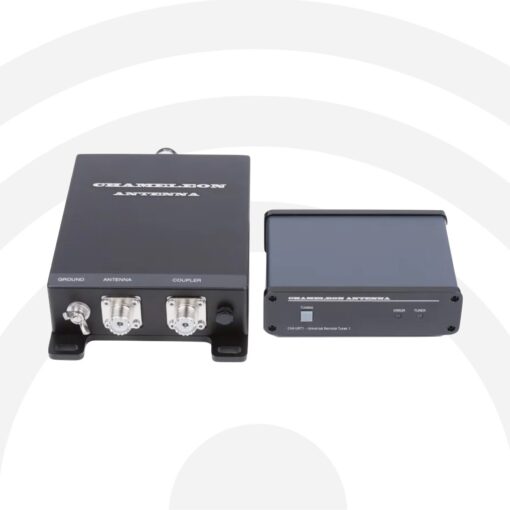 Antenna Tuners, Chameleon Antenna, Transceiver Accessories
Antenna Tuners, Chameleon Antenna, Transceiver AccessoriesChameleon Antenna URT1 Universal Remote Tuner
The Chameleon Antenna URT1 is a remote outdoor tuner for almost any type of antenna and any brand or model transceiver. It matches coaxial cable or wire fed antennas and has a wide tuning range of 5-1500 Ohm and a maximum power handling of 125W.
SKU: CHA-URT1 -
Chameleon Antenna, TX Antennas, Portable Antennas, Wire Antennas, Adventure Products
Chameleon HYBRID-MICRO
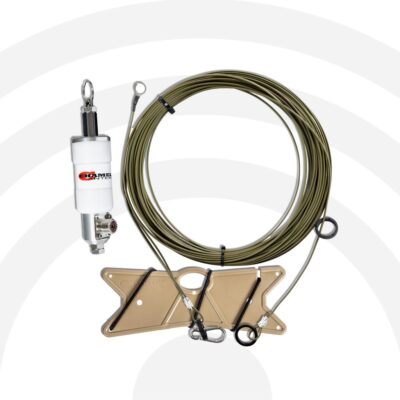 Chameleon Antenna, TX Antennas, Portable Antennas, Wire Antennas, Adventure Products
Chameleon Antenna, TX Antennas, Portable Antennas, Wire Antennas, Adventure ProductsChameleon HYBRID-MICRO
The Chameleon HYBRID MICRO is a lightweight highly portable broadband antenna system designed to offer maximum portability and performance. The antenna weights only 450 gram (1 lb).
SKU: CHA-HYBRID-MICRO
-
Antenna Accessories, Chameleon Antenna, Chokes & Transformers, Coax Cable, RFI Prevention
Chameleon 15m Coax with RFI Choke
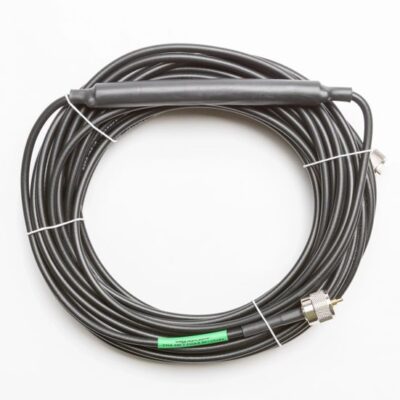 Antenna Accessories, Chameleon Antenna, Chokes & Transformers, Coax Cable, RFI Prevention
Antenna Accessories, Chameleon Antenna, Chokes & Transformers, Coax Cable, RFI PreventionChameleon 15m Coax with RFI Choke
Chameleon 15m Coax with RFI CHOKE, perfect to use with unbalanced verticals and end feed wire antennas. The RFI CHOKE reduces or totally eliminates the RFI carried by the coax cable.
SKU: CHA-50-COAX -
Adventure Products, Antenna Accessories, Chameleon Antenna, Chokes & Transformers, Coax Cable, RFI Prevention
Chameleon RFI Choke – Eliminate Noise
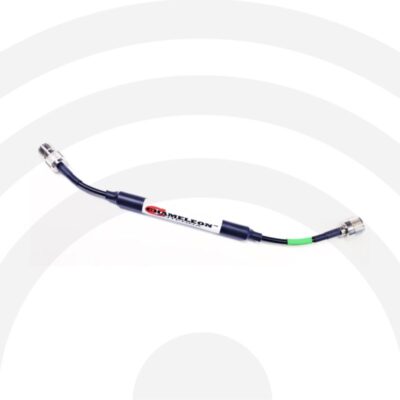 Adventure Products, Antenna Accessories, Chameleon Antenna, Chokes & Transformers, Coax Cable, RFI Prevention
Adventure Products, Antenna Accessories, Chameleon Antenna, Chokes & Transformers, Coax Cable, RFI PreventionChameleon RFI Choke – Eliminate Noise
Ensure cleaner signals and improved performance with the Chameleon RFI Choke. Designed for serious HF operators, this compact and rugged choke suppresses unwanted RF interference right at the source.
SKU: CHA-RFIC
Final Thoughts
Internal tuners are incredibly useful tools, but understanding their limits is key to unlocking better performance. When paired with a HYBRID-MICRO, or replaced by a tuner at the feed point like the URT1, you’ll get much more out of compact verticals like the SS17.
If you’re not sure which approach is right for your setup, internal vs. external tuner, we’re happy to help!
📩 Contact us at PileupDX or leave a comment below.


